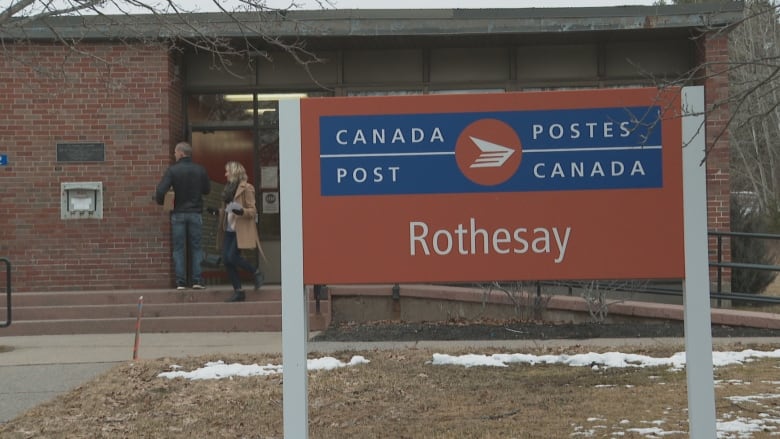https://twitter.com/DavidRaymondAm1/with_replies
N.B. using stale data to calculate COVID payouts, and it's costing some communities thousands
Province criticized for using 2016 population estimates for 'per capita' distribution of relief funds
· CBC News · Posted: Feb 11, 2021 7:00 AM AT

Federal COVID-19 relief funding provided to New Brunswick for municipalities was based on 2020 population estimates, but the Higgs government reverted to 2016 estimates when it handed the money out to cities, towns and villages. (Government of New Brunswick)
The provincial government's use of stale population numbers to hand out millions in COVID-19 relief funds has overpaid thousands of dollars to some communities, undercut amounts sent to other communities, and ignored one swath of the population completely.
Earlier this week, the province announced plans to distribute $28 million in leftover federal COVID-19 relief money that it is required to forward to municipalities.
But it is basing the distribution plans on outdated data, something Fredericton Councillor Greg Ericson calls "very unfortunate."
Ericson, who is also chair of the city's finance committee, said there have been federal dollars "trying to get from Ottawa to New Brunswick" since the start of the pandemic.
"The greatest challenge has been the New Brunswick government getting in the way," he said.
When plans to distribute the $28 million to municipalities were announced, local government minister Daniel Allain said the money would be handed out equally to 104 communities "on a per capita basis."
But his department used 2016 population numbers, not current estimates, to do it.
Difference will cost Fredericton about $121,000 in funding
It's a significant difference in many cases.
New Brunswick municipalities have added 28,000 people since 2016, and thousands more have moved between communities, changing the population of each of them.
In Fredericton's case, the per-capita COVID funding it will receive is based on its 2016 population of 58,636, even though its current population is 64,180, according to Statistics Canada estimates.
The difference will cost the city about $121,000 in funding.
- Municipalities in line for millions in COVID relief, even if they don't need it
- Millions in federal relief being held up by province
Some of the 5,544 Fredericton residents not being counted in the per capita formula moved to the city from other New Brunswick communities during the last five years, and their amounts will be credited to where they lived in 2016.
Other new residents are not being counted at all.
The formula skips over thousands of newcomers completely by not counting them toward the "per capita" distribution of the federally supplied funding.
Ericson said failing to count every current resident in a per-capita formula is a problem, but he suspects it might not be an accident.
"Am I surprised there is a rural bias in how the government is dividing the money? No I am not," said Ericson.

Rothesay is one of several dozen slower-growing New Brunswick communities that benefited from the province's use of old data to divide up COVID relief funding. The town received $8,500 more than it would have received if updated 2020 estimates were used. (Graham Thompson/CBC)
Only official Census data used, Allain's office says
Ottawa sent New Brunswick $41.1 million in COVID-19 compensation funds for municipalities last year, part of a $2-billion national distribution of money for municipalities based on each province's population.
After forwarding $13.1 million to communities over the fall and winter for direct COVID-19 expenses and losses, the Higgs government was left with $28 million to divide up as it saw fit.
Although Ottawa had used New Brunswick population estimates from 2020 to determine how much to send the province, the province reverted to 2016 estimates to hand it out.
Daniel Allain's office did not grant an interview request to ask about the use of 2016 population data, but his office said in an email that this is government policy.
"We only use official Census data for funding formulas and calculations and the last Canadian Census was in 2016," the email noted.
The use of old data benefits shrinking communities or those with stagnant growth, and penalizes those that are expanding.

Hanwell Mayor Susan Cassidy says the province should not be using 2016 data to distribute money in 2021. The five-year lapse means her community will get $5,000 less than it would have if 2020 data had been used. (Radio-Canada file photo)
For example, Nackawic is to receive $51,083.08 in per capita funding – less than Hartland, Blackville, Sainte-Anne-de-Madawaska or Nigadoo will receive, even though it has grown larger than all four since 2016.
Rothesay is to be sent $632,919.89 as its per-capita amount. That's 46 per cent of the $1.38 million Dieppe will get, even though Rothesay's population is just 42 per cent of Dieppe's.
Grand Falls is to receive more funding than Woodstock, even though it has 250 fewer people this year, and Hanwell, which has grown larger than Memramcook and Grand Bay-Westfield since 2016, will receive less than both.
Hanwell Mayor Susan Cassidy said she is not concerned about the extra $5,000 her community would get if updated population numbers were used by the province, but she does think relying on outdated data is poor public policy.
"The five-year lapse is excessive," said Cassidy. "There are other methods out there."
In total, the use of 2016 population data will cost 21 growing New Brunswick communities $480,000 in funding.
About $191,000 of that involves Moncton, which has added 7,619 people since 2016.



A benchmark is just that a point in time line in the sad.
To the cities that are claiming they are being hard done by, chill this is not the end of the world or even a material item

yeah
that's the problem with methodologies
theres too many
I guess Eric also believes if the feds say spend money their way
you had better invest

Equation 1.1: P(t+i) = Pt + B(t,t+i) - D(t,t+i) + I(t,t+i) - E(t,t+i) + ΔNPR(t,t+i) + IMnet(t,t+i)
This is how births, deaths, immigration, and other factors are considered between census data sets. The Province of New Brunswick uses this when it serves its purposes.
Are there better ways, of course. Should they simply make the change for this one exercise, absolutely not.






No comments:
Post a Comment